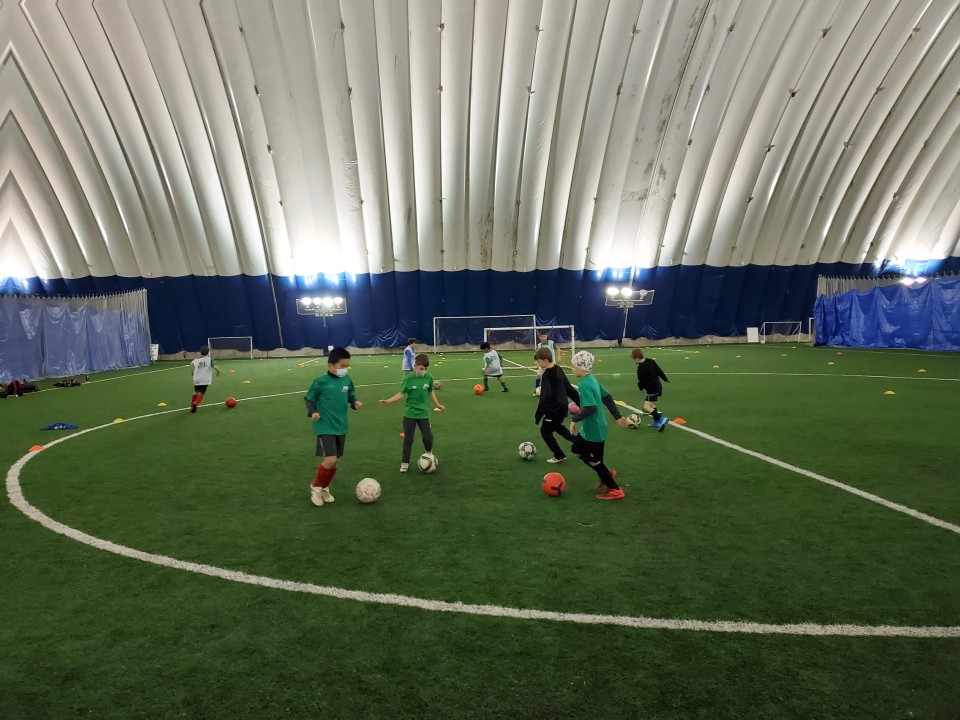
“right” thing? This or that person has under delivered, has lied, has ignored us! Can we trust business leaders to treat people fairly during a pandemic? Can we trust the public to follow public health messages? Can we trust the process to get the results we need/want/wish for?
If you look at the Merrriam-Webster definition online there are several five references in the listing of “trust”. Maybe this is an oversimplification of “trust”, but what does it mean in coaching and how can it be a powerful tool in leading/guiding employees? As a coach, I wonder if there is a bigger guiding principle you can offer to a young player learning to play a sport. I remember an instance where two players on the same team I was coaching both trusted the process and didn’t in the same game. My coaching colleague Nazeer Patel and I were imparting to some young players the importance of learning 1v1 soccer moves and to take a chance to apply them in a game. In fact we took it to the extreme, in the game we tracked how many times a player tried to make a 1v1 move to beat an opposing player. We did not track the score.
It is important to note, when you do this and don’t tell the parents, they will LOSE THEIR MINDS on the other sideline. What happened? We had one player popping rainbows and Maradona’s (I thought of this story with the recent passing of the soccer legend) at the top of the 18 yard box. She seemed undaunted by the potential outcomes and “trusted” the process. While in the same game another young player, refused to make any leaps of faith, worried about making a mistake, and would not try the moves we were practicing relentlessly in training. Why two different approaches? Was it individual confidence? Was it something to do with parental pressure not to make a mistake? Maybe…but I would like to believe that the fact Nazeer and I reinforced a level of trust that if the player made a move and the ball ended up in the back of our own net, we were okay with it, as this was a learning experience. We really did not care about the score in a league with no standings (even if there was, we cared more about individual development). One player trusted us, the other did not. Over time we slowed tried to encourage the creativity with all players, that one struggled for fear of making a mistake.
How does this translate into business? Trust is so important in building solid relationships. If colleagues, partners or supervisors can’t trust you to perform/deliver/support, then relationships will sour, people will act in a stifled actions and true creativity will not come through. Here are a few ideas on how I have tried to build trust in the workplace translated from my coaching experiences:
- Do what you say you will do! Pretty simple as a leader make sure you are delivering on your promises, especially to staff members. If you support work from home, then do! If you say you will pull information for a project together, then do it! If you say you will support training and development…then find a way to do it! This does not mean, opening up the bank account, it means being collaborative, open and willing to put action to words.
- Accept that people will make mistakes and how you respond matters! Other than my grandmother telling me how perfect my father was (and he was pretty perfect), I have not met a perfect person. Mistakes happen, stress can build, tempers lost, wrong decisions made. Accept mistakes…but learn from them, build to better solutions or situations.
- Patience is truly a virtue! In the soccer story above, Nazeer and I had to be incredibly patient with all the players to build trust that we were focused on their personal development. When we did not explode on losing the ball after making a move and the ball ended up in our net, players learned what was important. This takes time to build build trusting relationships and they are built after several actions and conversations.
Trust can be a powerful ally in a world of uncertainty. The ability to support one another during a global pandemic rests on the undertone of trusting relationships – can I see person X doing what they said they would do? We also have to accept that we are all human and mistakes will happen, we must own up to them and learn to improve over time.
